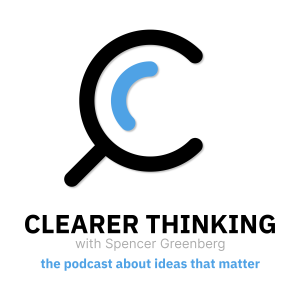
- Podcast Features
-
Monetization
-
Ads Marketplace
Join Ads Marketplace to earn through podcast sponsorships.
-
PodAds
Manage your ads with dynamic ad insertion capability.
-
Apple Podcasts Subscriptions Integration
Monetize with Apple Podcasts Subscriptions via Podbean.
-
Live Streaming
Earn rewards and recurring income from Fan Club membership.
-
Ads Marketplace
- Podbean App
-
Help and Support
-
Help Center
Get the answers and support you need.
-
Podbean Academy
Resources and guides to launch, grow, and monetize podcast.
-
Podbean Blog
Stay updated with the latest podcasting tips and trends.
-
What’s New
Check out our newest and recently released features!
-
Podcasting Smarter
Podcast interviews, best practices, and helpful tips.
-
Help Center
-
Popular Topics
-
How to Start a Podcast
The step-by-step guide to start your own podcast.
-
How to Start a Live Podcast
Create the best live podcast and engage your audience.
-
How to Monetize a Podcast
Tips on making the decision to monetize your podcast.
-
How to Promote Your Podcast
The best ways to get more eyes and ears on your podcast.
-
Podcast Advertising 101
Everything you need to know about podcast advertising.
-
Mobile Podcast Recording Guide
The ultimate guide to recording a podcast on your phone.
-
How to Use Group Recording
Steps to set up and use group recording in the Podbean app.
-
How to Start a Podcast
-
Podcasting
- Podcast Features
-
Monetization
-
Ads Marketplace
Join Ads Marketplace to earn through podcast sponsorships.
-
PodAds
Manage your ads with dynamic ad insertion capability.
-
Apple Podcasts Subscriptions Integration
Monetize with Apple Podcasts Subscriptions via Podbean.
-
Live Streaming
Earn rewards and recurring income from Fan Club membership.
-
Ads Marketplace
- Podbean App
- Advertisers
- Enterprise
- Pricing
-
Resources
-
Help and Support
-
Help Center
Get the answers and support you need.
-
Podbean Academy
Resources and guides to launch, grow, and monetize podcast.
-
Podbean Blog
Stay updated with the latest podcasting tips and trends.
-
What’s New
Check out our newest and recently released features!
-
Podcasting Smarter
Podcast interviews, best practices, and helpful tips.
-
Help Center
-
Popular Topics
-
How to Start a Podcast
The step-by-step guide to start your own podcast.
-
How to Start a Live Podcast
Create the best live podcast and engage your audience.
-
How to Monetize a Podcast
Tips on making the decision to monetize your podcast.
-
How to Promote Your Podcast
The best ways to get more eyes and ears on your podcast.
-
Podcast Advertising 101
Everything you need to know about podcast advertising.
-
Mobile Podcast Recording Guide
The ultimate guide to recording a podcast on your phone.
-
How to Use Group Recording
Steps to set up and use group recording in the Podbean app.
-
How to Start a Podcast
-
Help and Support
- Discover

Clearer Thinking with Spencer Greenberg
Science:Social Sciences

Should we trust papers published in top social science journals? (with Daniel Lakens)
Read the full transcript here.
How much should we trust social science papers in top journals? How do we know a paper is trustworthy? Do large datasets mitigate p-hacking? Why doesn't psychology as a field seem to be working towards a grand unified theory? Why aren't more psychological theories written in math? Or are other scientific fields mathematicized to a fault? How do we make psychology cumulative? How can we create environments, especially in academia, that incentivize constructive criticism? Why isn't peer review pulling its weight in terms of catching errors and constructively criticizing papers? What kinds of problems simply can't be caught by peer review? Why is peer review saved for the very end of the publication process? What is "importance hacking"? On what bits of psychological knowledge is there consensus among researchers? When and why do adversarial collaborations fail? Is admission of error a skill that can be taught and learned? How can students be taught that p-hacking is problematic without causing them to over-correct into a failure to explore their problem space thoroughly and efficiently?
Daniel Lakens is an experimental psychologist working at the Human-Technology Interaction group at Eindhoven University of Technology. In addition to his empirical work in cognitive and social psychology, he works actively on improving research methods and statistical inferences, and has published on the importance of replication research, sequential analyses and equivalence testing, and frequentist statistics. Follow him on Twitter / X at @Lakens.
Further reading
- Nullius in Verba (Daniel's podcast)
Staff
- Spencer Greenberg — Host / Director
- Josh Castle — Producer
- Ryan Kessler — Audio Engineer
- Uri Bram — Factotum
- WeAmplify — Transcriptionists
Music
- Broke for Free
- Josh Woodward
- Lee Rosevere
- Quiet Music for Tiny Robots
- wowamusic
- zapsplat.com
Affiliates
- Clearer Thinking
- GuidedTrack
- Mind Ease
- Positly
- UpLift
More Episodes
 2024-10-30
2024-10-30
 2024-10-23
2024-10-23
Create your
podcast in
minutes
- Full-featured podcast site
- Unlimited storage and bandwidth
- Comprehensive podcast stats
- Distribute to Apple Podcasts, Spotify, and more
- Make money with your podcast
It is Free
- Privacy Policy
- Cookie Policy
- Terms of Use
- Consent Preferences
- Copyright © 2015-2025 Podbean.com



